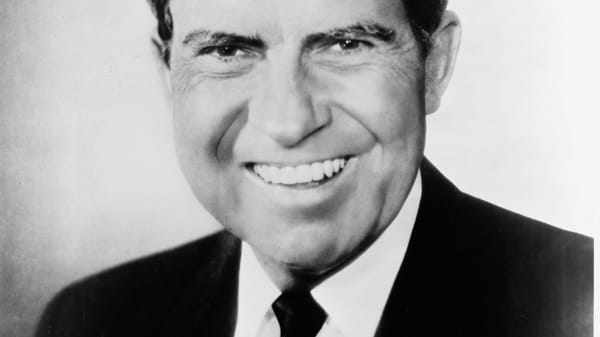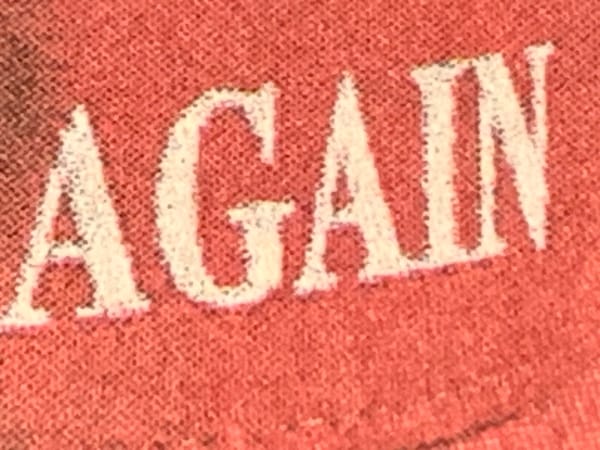Indignity Vol. 1 No. 13: World leader pretends.
THE WORST THING WE READ THIS WEEK™

Why Do Politics Keep Getting in the Way of Empire?
WHEN I SEE Tony Blair, with his taut brows and his bright eyes, I can't stop thinking about how modern cosmetic surgery exists because the Great War presented doctors with the chance to develop techniques and procedures on a previously unimaginable supply of otherwise healthy young men who'd had their faces blown off. A photograph of the former prime minister of Great Britain—suit shoulders angled, head straight on, shirt neck unbuttoned past the bottom of the frame—gazed out at the reader beside the headline "Tony Blair: Why We Must Not Abandon the People of Afghanistan – For Their Sakes and Ours" on the website of the Tony Blair Institute for Global Change. A second photo, a round avi with necktie, accompanied the "Tony Blair" byline.
Tony Blair, of the Tony Blair Institute, was not happy with the events in Afghanistan this month. "The abandonment of Afghanistan and its people is tragic, dangerous, unnecessary, not in their interests and not in ours," he wrote. He went on:
In the aftermath of the decision to return Afghanistan to the same group from which the carnage of 9/11 arose, and in a manner that seems almost designed to parade our humiliation, the question posed by allies and enemies alike is: has the West lost its strategic will? Meaning: is it able to learn from experience, think strategically, define our interests strategically and on that basis commit strategically? Is long term a concept we are still capable of grasping? Is the nature of our politics now inconsistent with the assertion of our traditional global leadership role? And do we care?
There's been no shortage of dumb and dishonest or delusional writing in response to the unraveling of the Afghanistan war project. Blair's essay stood out, though, because it came from a firsthand participant in creating that project. Here was a look into the mind of someone who had personally brought us the war.
Not that it was meant to be any sort of honest reckoning. Blair made quite a few shifty rhetorical choices in that opening passage alone, starting with using the word "decision" to describe the fact of the United States and its allies having lost to the Taliban. A more forthright analyst might have acknowledged the defeat as the latest proof, 20 years in the making, that outside military powers do not have the ability to decide what will or won't happen in Afghanistan, rather than bemoaning someone else's failure to think "strategically" or in the "long term."
The flashy part, though, was the choice to call the Taliban "the same group from which the carnage of 9/11 arose"—a phrasing just clever enough to force the reader to spend a moment working out how it was that Blair might have considered himself not to be lying. The Taliban did not do 9/11, Blair and the reader both knew. But the Taliban did play a role in creating the conditions under which the group that did do 9/11 was able to operate. As did the CIA, if one wants to keep causes and effects loose.
To say 9/11 arose from the Taliban was to keep a treadmill running, looping steadily from 2001 to 2021 and back again, returning over and over to the moment when, thanks to the carnage of 9/11, Tony Blair and George W. Bush had majority sentiment behind them. If history never changes, then nothing ever needs to change to accommodate it.
Except Blair simultaneously maintained that history had changed—that despite "misplaced ambition" and "mistakes, some serious," the worst of the war was safely in the past. The withdrawal only happened "in obedience to an imbecilic political slogan about ending 'the forever wars,' as if our engagement in 2021 was remotely comparable to our commitment 20 or even ten years ago."
The whole story of the manageable and downscaled war was only true if you didn't count the ever-increasing death toll among Afghans. Blair did not count it. He plunged on, and on, in the deadly flattened cadence of the end-of-history technocrats, the clipped little phrase-blocks of those leaders who had witnessed the fall of the Soviet Union and followed it up by successfully containing the Y2K bug: "Gains in living standards, education particularly of girls, gains in freedom. Not nearly what we hoped or wanted. But not nothing. Something worth defending. Worth protecting."
Or: "This demands an immediate response in respect of Afghanistan. And then measured and clear articulation of where we stand for the future." And: "The disarray of the past weeks needs to be replaced by something resembling coherence, and with a plan that is credible and realistic."
Also: "the sacrifices of our troops had made those fragile gains our duty to preserve." A sincere technocrat might recognize that as the sunk-cost fallacy. But Blair saved his sincerity for something else: sincere envy of Vladimir Putin's unflinching support of the Assad regime in Syria. While the Western powers allowed mere politics to outweigh strategy, Putin "has spent ten years in open-ended commitment. And though he was intervening to prop up a dictatorship and we were intervening to suppress one, he, along with the Iranians, secured his goal."
So what if the model of open-ended strategic commitment is mass slaughter? The important thing is to have goals and to stick to them. Or to stick to something, anyway. At one point, Blair urged his readers to look at "the excellent summary of what we got right and wrong from General Petraeus in his New Yorker interview."
The interview in question was by Isaac Chotiner, whose specialty is getting famous people to reveal, under meticulous cross-examination, the utter shallowness and confusion of their beliefs and theories. David Petraeus, on the phone while walking his dog, promised Chotiner five lessons from the 20 years in Afghanistan. By the middle of the second lesson, the former general was already babbling:
Lesson No. 2 is that you actually have to do something about this problem itself. You can’t study it until it goes away. We did that for a time with respect to the Islamic State in Syria, and it wasn’t until they had generated enormous combat power, swept back into Iraq, established the caliphate in northern Iraq and northeastern Syria, carried out activities on social media to galvanize and instigate terrorist attacks. You have to do something, because what happens there doesn’t stay there. It’s not Las Vegas rules. It’s the opposite. And these situations tend to have violence, extremism, instability, and, most significantly in the case of Syria, a tsunami of refugees in our NATO allies, causing the biggest domestic political challenges since the end of the Cold War.
Consider, with the endorsement of the former prime minister of Great Britain, the wisdom of 20 years of war, according to the former commander of American forces in Iraq and in Afghanistan, who went on to be head of the CIA: "You have to do something."
Blair didn't mind the muddle, because he was pressing on to his main point: that the West is in a hundred-year-long struggle against a global ideological threat. "I will call it 'Radical Islam' for want of a better term," Blair wrote.
Now it really was October 2001 all over again. And not even the October 2001 of George W. Bush, who at least (and it was truly the least) discouraged talk of a global war against Islam, even as his administration used an attack by one Islamist terrorist group as pretext for war against two other Muslim targets. Tony Blair, in 2021, was declaring that there is a single global threat—in "many African countries," in "moderate Arab countries in the Middle East," in Lebanon, in Turkey, Pakistan, Indonesia, Malaysia, "sections of our own Muslim communities" in the West.
Here was Blair's strategic vision: "although, of course, many of those espousing Islamism are opposed to violence, they share ideological characteristics with many of those who use it—and a world view that is constantly presenting Islam as under siege from the West."
Why would people perceive Islam as under siege from the West, as the former prime minister of Great Britain denounced policymakers for their reluctance to declare "Radical Islam" the enemy and proposed that the entire Islamist political community be seen as congruent with terrorism?
"If we did define it as a strategic challenge, and saw it in whole and not as parts," Blair wrote, "we would never have taken the decision to pull out of Afghanistan." Instead, he argued, the West would have taken Islamism to be a threat on par with "Revolutionary Communism," to be the target of worldwide confrontation, "both ideologically and with security measures," for the greater part of a century if necessary.
A few days after Blair published his thoughts on the unity of the Islamist threat, the transition to the Taliban's Islamist control of Afghanistan was disrupted by a suicide bombing attack, committed by what appeared to be a hostile Islamist faction. Twenty years of war had not even produced a coherent enemy.

REMINDER DEP’T.
THE SOPHIST is here to tell you why you're right. Send your questions to indignity@indignity.net, and get the answers you want.


APPLIED SANDWICH RECIPE DEP’T. ADDENDUM
BY JOE MACLEOD
HERE IS AN additional laboratory result for the RAISIN SANDWICHES recipe from Salads, Sandwiches and Chafing Dish Recipes, Copyright 1916, by Marion Harris Neil, M.C.A., as revived and presented, Public Domain-wise, in Hmm Weekly for July 27, 2021, prepared and enjoyed for the record in Indignity Vol. 1 No. 12.
Mayonnaise! Yeah, wow, BIG DIFFERENCE, way better than the butter. I used Duke’s which has a bit of a tang and that’s the way to go. I did not bother with the brown bread and went straight saltine. Enjoy!
If you decide to prepare and enjoy a sandwich, kindly send a picture to us at indignity@indignity.net.






